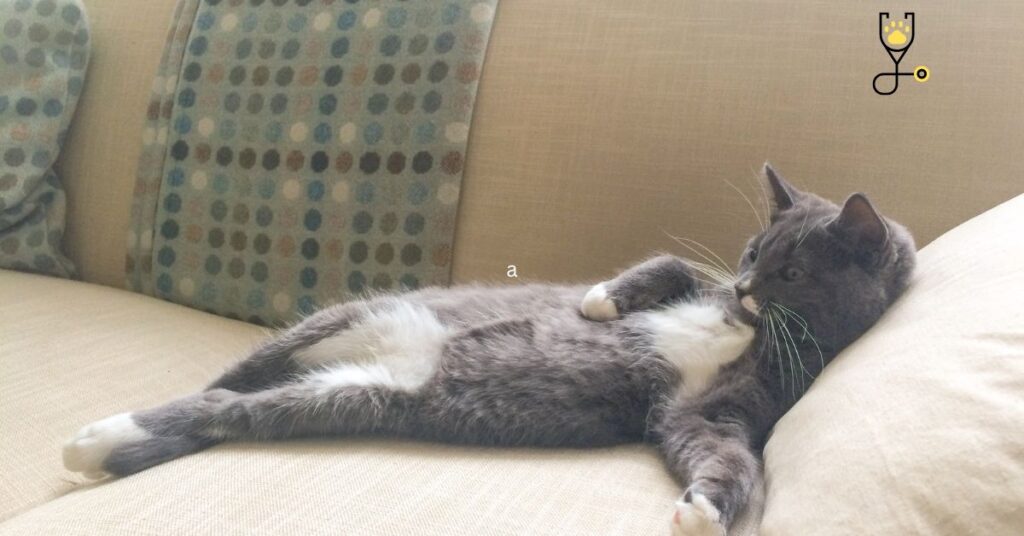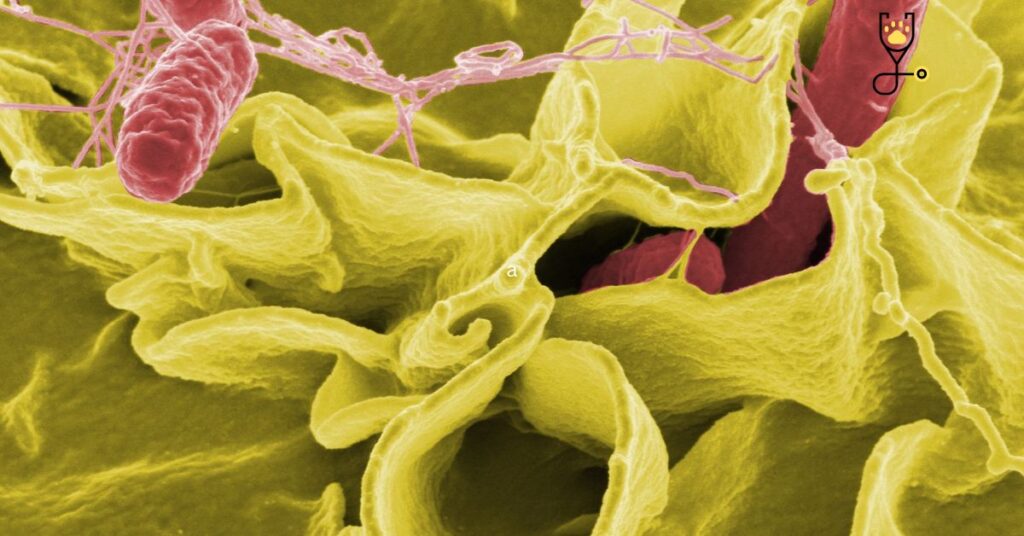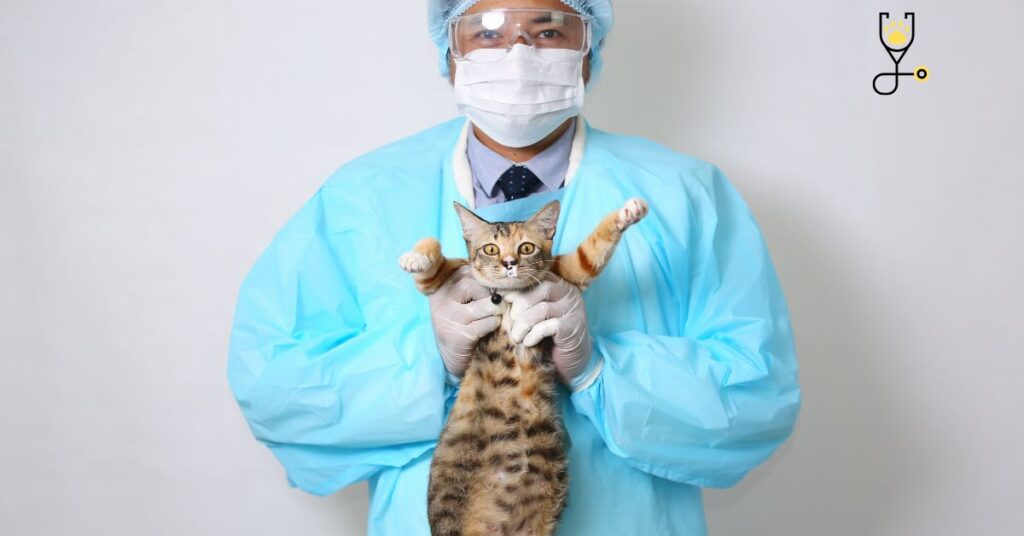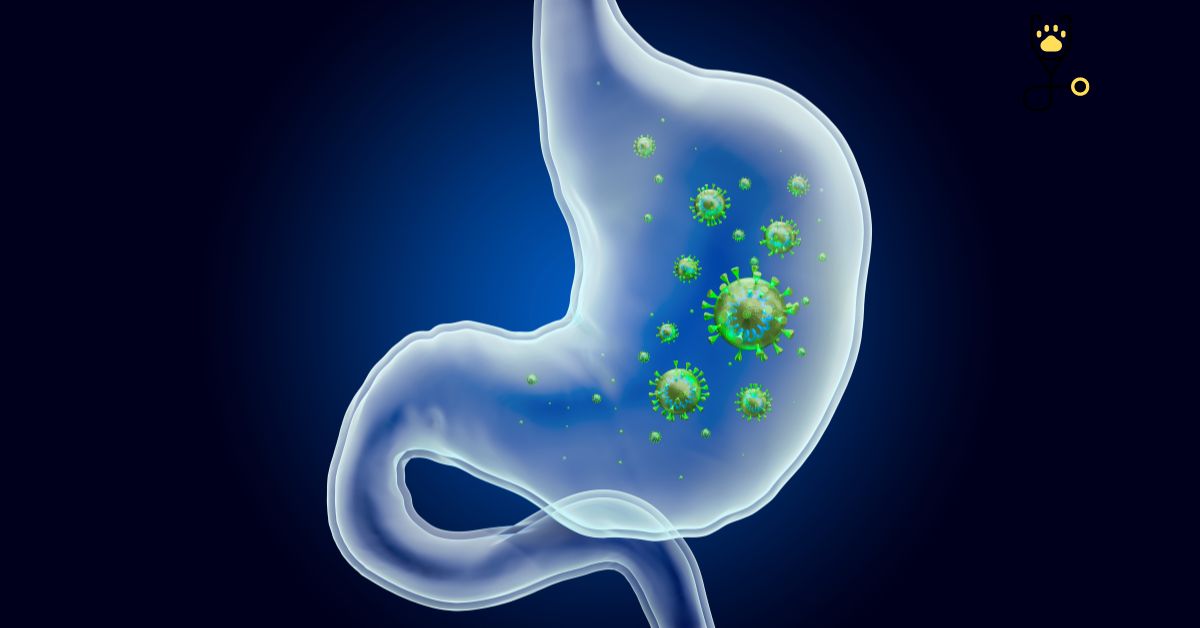Introduction
In the world of cats, Gastroenteritis is a condition that can be quite common. This is a general term that refers to inflammation of the gastrointestinal tract. There are many potential causes for this, including infection, parasites, toxins, and dietary problems. The good news is that most cases of Gastroenteritis in cats can be treated successfully with antibiotics, symptomatic treatment, and supportive care. In this article, we will discuss the causes, symptoms, and treatment options for Gastroenteritis in cats. We will also provide some tips on how to prevent this condition from occurring in your cat.
What is Gastroenteritis in Cats?
Gastroenteritis in cats is a condition that refers to inflammation of the gastrointestinal tract. The gastrointestinal tract includes the stomach and intestines. In some cases, the condition may also involve the esophagus, which is the tube that connects the mouth to the stomach. Gastroenteritis can be caused by many different things, including infection, parasites, toxins, and dietary problems.
Symptoms of gastroenteritis in cats

1. vomiting
vomiting is one of the most common symptoms of gastroenteritis in cats. it can be caused by a number of things, including infection, food intolerance, or ingestion of a foreign object.
2. diarrhea
diarrhea is another common symptom of gastroenteritis in cats. it is often caused by an infection, but can also be caused by food intolerance or ingestion of a foreign object.
3. loss of appetite
loss of appetite is a common symptom of gastroenteritis in cats. it can be caused by a number of things, including infection, food intolerance, or ingestion of a foreign object.
4. weight loss
weight loss is a common symptom of gastroenteritis in cats. it can be caused by a number of things, including infection, food intolerance, or ingestion of a foreign object.
5. dehydration
dehydration is a common symptom of gastroenteritis in cats. it can be caused by a number of things, including vomiting, diarrhea, or loss of appetite.
6. lethargy
lethargy is a common symptom of gastroenteritis in cats. it can be caused by a number of things, including infection, dehydration, or anemia.
7. weakness
weakness is a common symptom of gastroenteritis in cats. it can be caused by a number of things, including infection, dehydration, or anemia.
8. collapse
collapse is a common symptom of gastroenteritis in cats.
it can be caused by a number of things, including dehydration, shock, or anaphylaxis.
9. death
death is a rare but possible complication of gastroenteritis in cats. it can be caused by a number of things, including septic shock, organ failure, or electrolyte imbalance.
Causes of gastroenteritis in cats

1. Infectious causes
There are many different types of infections that can cause gastroenteritis in cats. The most common include:
-viral infections, such as feline calicivirus and feline panleukopenia
-bacterial infections, such as Salmonella, Campylobacter, and E. coli
-parasitic infections, such as Giardia and Cryptosporidium
2. Non-infectious causes
There are many non-infectious causes of gastroenteritis in cats. The most common include:
-food intolerance or allergies
-ingestion of a foreign object
-toxin ingestion, such as plants or chemicals
3. Stress
Stress is a common trigger for gastroenteritis in cats. It can be caused by many different things, including:
-change in environment
-change in routine
-lack of socialisation
4. Genetics
Some cats are simply more prone to gastroenteritis than others. This is often due to genetics or underlying health conditions.
5. Age
Kittens and senior cats are more susceptible to gastroenteritis than adult cats. This is due to their weaker immune systems.
Treatments of gastroenteritis in cats

1. Home treatment
There are many things you can do at home to treat gastroenteritis in cats. The most important thing is to make sure your cat stays hydrated. This can be done by offering small amounts of water or electrolyte solution frequently. You should also offer small meals of bland, easily digestible food. If your cat is vomiting or has diarrhea, you may also need to give them medication to stop these symptoms.
2. Veterinary treatment
If home treatment does not improve the condition of your cat, or if they are showing signs of dehydration, you will need to take them to the vet for treatment. Treatment will vary depending on the underlying cause of the gastroenteritis, but may include:
-fluids to rehydrate your cat
-antibiotics to treat infection
-anti-vomiting or anti-diarrhea medication
-pain relief medication
-nutritional support
Prevention of gastroenteritis in cats
1. Vaccination
The best way to prevent gastroenteritis in cats is to have them vaccinated against the most common viruses, bacteria, and parasites.
2. Good hygiene
Good hygiene practices can help to prevent the spread of infections that can cause gastroenteritis. This includes washing your hands after handling your cat and disinfecting their food and water bowls regularly.
3. Capacity control
If you are feeding a large number of cats, it is important to maintain a good ratio of food to water. This will help to prevent gastroenteritis caused by malnutrition.
4. Stress reduction
Reducing stress in your cat can help to prevent gastroenteritis. This includes providing a safe, stable environment, and maintaining a regular routine.
Prognosis of gastroenteritis in cats
The prognosis for gastroenteritis in cats is generally good. Most cats will recover with home treatment or medical treatment from a veterinarian. However, some cats may develop complications from the condition, such as dehydration or septic shock. These complications can be life-threatening, so it is important to seek veterinary care immediately if your cat is showing any signs of illness.
Conclusion
Gastroenteritis is a common condition in cats that can be caused by many different things. The most important thing to do if your cat has gastroenteritis is to keep them hydrated and seek veterinary care if they are not improving. Vaccination and good hygiene practices can help to prevent the condition.
FAQ’s
Gastroenteritis is a condition that causes inflammation of the gastrointestinal tract. This can lead to vomiting, diarrhea, and abdominal pain. Gastroenteritis can be caused by many different things, including infections, stress, and food intolerance.
The symptoms of gastroenteritis in cats include vomiting, diarrhea, lack of appetite, and weight loss. Cats may also have a fever and show signs of dehydration.
Treatment for gastroenteritis will vary depending on the underlying cause. The most important thing is to keep your cat hydrated. This can be done by offering small amounts of water or electrolyte solution frequently. You should also offer small meals of bland, easily digestible food. If your cat is vomiting or has diarrhea, you may also need to give them medication to stop these symptoms.
The best way to prevent gastroenteritis is to have your cat vaccinated against the most common viruses, bacteria, and parasites. Good hygiene practices can also help to prevent the spread of infection.
The prognosis for cats with gastroenteritis is generally good. Most cats will recover with home treatment or medical treatment from a veterinarian. However, some cats may develop complications from the condition, such as dehydration or septic shock. These complications can be life-threatening, so it is important to seek veterinary care immediately if your cat is showing any signs of illness.







